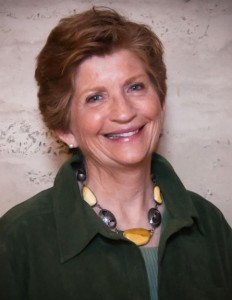 From the time she took her first art course in school, Graciela knew she wanted to study painting seriously. And as she fantasized about her future, she saw herself doing internships with masters in Italy, land of her ancestors, and eventually living somewhere in the Tuscany countryside … painting.
From the time she took her first art course in school, Graciela knew she wanted to study painting seriously. And as she fantasized about her future, she saw herself doing internships with masters in Italy, land of her ancestors, and eventually living somewhere in the Tuscany countryside … painting.
Then life stepped in. Graciela’s family moved from Argentina to the U.S., where she conveniently married the son of her parents’ best friends. With two kids in two years, painting was set aside.
She worked in her husband’s framing business to cut back on one employee salary and to allow more money to support their growing young family. Besides helping out, she was “close to painting” by framing other people’s works. At least that’s what she told herself.
When her husband died early, Graciela took the reins of the business. She signed up for accounting classes to be able to control the numbers. She was determined she would someday finance her old Italian dream, for after the boys were grown. And she knew exactly how much she had to set aside to make that happen …
That’s when I met Graciela. Her company was profitable, although not exactly a generous cash cow. As we worked together, I noticed the numbers never seemed to make sense. Based on the level of business activity, there should have been much more after-tax profit available to fund her dream. So when I convinced her to keep a detailed 90-day spending journal, I found the problem.
Graciela was incapable of saying no to her two grown sons who should have been standing on their own by now. Instead, they played at working … and called Graciela whenever money ran short. She had overcompensated for the loss of their father by giving them everything. She became the enabler … and they, the enabled.
Now things were compounded by the guilt that had set in, and she feared losing them if she didn’t meet all their demands.
What do you think the chances are that Graciela will ever retire to Tuscany to paint?
x-x-x-x-x
Companies clamored after Phyllis to work for them on their strategic planning teams. Over the years, she had turned around and revived company after company, many of them household names, with her out-of-the-box (and super-effective) strategies.
While working with each one, Phyllis qualified for and participated in their matching 401(k) plans. In fact, about half the mail that sat unopened on the little table next to her front door consisted of quarterly statements for funds and proxy voting forms for the shares she held in different portfolios. The other half consisted of bills – tiresome bills that could easily be paid while she was earning so consistently – but that instead gathered interest and penalties for late or non-payment.
She’d say, “I’m an ideas person, not a numbers person!”
Phyllis had no idea how much she had made over the years, but she was sure it was a lot – just as she was sure that her 401(k)s were invested wisely by her many ex-employers. She played as hard as she worked, but was never extravagant, and certainly lived within her means.
In 2009, demand for Phyllis’s services dried up. Company owners had decided to sit on all their cash when they saw increased regulations strangling the profitability of any new ventures or strategic expansions.
Already 57, she figured she’d tally up all she had accumulated, sell her house if it still had any equity left in it, and go reinvent herself somewhere else. Maybe she’d go work with women in some African nation, helping them start up businesses.
What do you think the chances are that Phyllis will have enough to support her next venture or retirement?
x-x-x-x-x
If you asked Amy what her dreams were, she looked at you with a blank stare. “Dreams? Dreams? The last time I had any dreams of my own, I was a cheerleader in high school!”
After high school came marriage, motherhood, and family. Plus the job she took to supplement the family income. Yet, as hard as she worked, she always seemed to be last on the priority list, with little time to think of herself.
Maybe once the kids are in college? But after funding their college tuition, there were always little emergencies like the blown car engine just weeks after it was out of warranty. Always something to keep them from being able to save for retirement.
So, if retirement looks that bleak, why bother saving at all? Why not stay in the present moment, and make that as comfortable as possible, if the future doesn’t look exactly glowing? Why dream, if the possibility of the dreams coming true seems so distant?
What do you think the chances are that Amy will make retirement for herself and her husband a priority and save enough to fulfill whatever new dreams they could conjure up for themselves?
x-x-x-x-x
Three fundamental reasons can explain why women fail to save enough money to take care of their future financial needs:
- emotional reasons that include all the childhood messaging that affects how we deal with money (one of many such behaviors is enabling loved ones out of feelings of guilt, lack of healthy boundaries, or fear of lost affection);
- physical reasons that demand that we get honest with our money by facing the numbers regularly and putting them on paper so we can no longer hide behind ignorance; and
- spiritual reasons that include defining what we want out of life in the long haul so we have the desire and the discipline to do what’s needed to become financially free.
These three vignettes are representative of those reasons.
If anything in those vignettes feels like it’s tripping you up, you’re not alone. In fact, you are more the rule than the exception. But you do need to know that you are leaving yourself vulnerable to outliving your savings.
So what steps are you taking right now to plan for your retirement? Not enough?
Well, it doesn’t have to be that way. What if I could help you pinpoint your stumbling blocks? What if I could make it easy for you to know where you are, where you want to be, and how to get there? After all, wouldn’t you like to improve the odds that your golden years really will be golden?
If so, be sure you’ve already filled in your name and email address in the upper right-hand corner. I’ll send you a personal invitation to my free teleseminar call in the coming weeks, just as soon as the date and time are firm. I’ll be digging into what keeps so many of us from being financially free … regardless of how successful we look to the outside world … and I’ll show you how to turn that around.
See you there!
x-x-x-x-x
 Sharon O’Day lost everything at age 53: her home, her business, everything. But how could that be? She’s an expert in global finance and marketing with an MBA from the Wharton School. She has worked with governments, corporations, and individuals … yes, she was the secret ‘weapon,’ if you will, behind many individuals in high places. But still, she did! Since then, Sharon has interviewed countless women and done extensive research to understand how that could have happened, especially with her strong knowledge of numbers and finance.
Sharon O’Day lost everything at age 53: her home, her business, everything. But how could that be? She’s an expert in global finance and marketing with an MBA from the Wharton School. She has worked with governments, corporations, and individuals … yes, she was the secret ‘weapon,’ if you will, behind many individuals in high places. But still, she did! Since then, Sharon has interviewed countless women and done extensive research to understand how that could have happened, especially with her strong knowledge of numbers and finance.
The surprising answers will be shared in her upcoming book “Money After Menopause.” Today her mission is to show as many women as possible how to become financially free for the long term, through her “Over Fifty and Financially Free” coaching programs. She has developed a step-by-step plan to get past all the obstacles that keep women broke and scared … and from reaching the financial peace of mind they so deserve.





